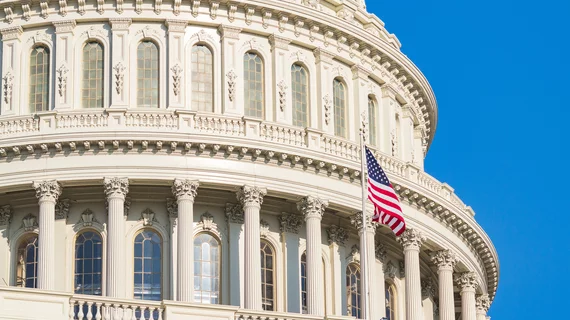ACR stays neutral on bill granting Medicare coverage for radiology assistant services in all settings
The American College of Radiology said Wednesday that it plans to remain neutral on recently proposed legislation granting Medicare coverage for radiology assistants’ services in all healthcare settings.
U.S. Rep. Mike Doyle, D-Penn., first unveiled his Medicare Access to Radiology Care Act (MARCA) in June. It drew support at the time from radiologic technologists, who believe the bill could help free up physicians to focus on image interpretation and urgent cases. However, the ACR said it has heard varying opinions from members about the proposal and will neither support nor oppose it at this time.
The college’s board of chancellors plans to hold listening sessions and gather further feedback on the rule, including surveying stakeholders. Following receipt of a report, the American College of Radiology said it will consider lifting its neutral stance and issuing an official policy.
“The ACR continues to actively oppose imaging supervision or interpretation and any independent practice by nonphysician providers,” it said in a statement posted Aug. 25.
Rep. Doyle’s bill proposes to amend the Social Security Act and align federal payment policy for radiology assistants to match state licensure laws. Experts emphasized in June that MARCA would not reimburse radiology assistants independently from a radiologist-led care team, nor could assistants interpret images or practice independently. Its passage would ensure reimbursement for imaging services that include an assistant’s contribution, whether delivered in a hospital, ambulatory surgery center or other facility. Sen. John Boozman, R-Ark., introduced similar legislation in the Senate on Aug. 5.
Groups including the American Society of Radiologic Technologists, American Registry of Radiologic Technologists and the Society for Radiology Physician Extenders are advocating for the bill’s passage. Such certified radiographers are rigorously trained and can safely perform certain assessments and functions (excluding interpretation) traditionally delivered by radiologists. But absent passage of, the rad assistant profession is “in peril,” with RAs losing their jobs and left unable to practice to the full extent of their training, ASRT and others said in June.
In the meantime, ACR said it will avoid any congressional lobbying on the topic, focusing instead on other priorities such as mitigating pay cuts outlined in the 2022 Medicare Physician Fee Schedule. Those include clinical labor wage updates advocates believe will “devastate” interventional radiology and radiation oncology,” the college said.

